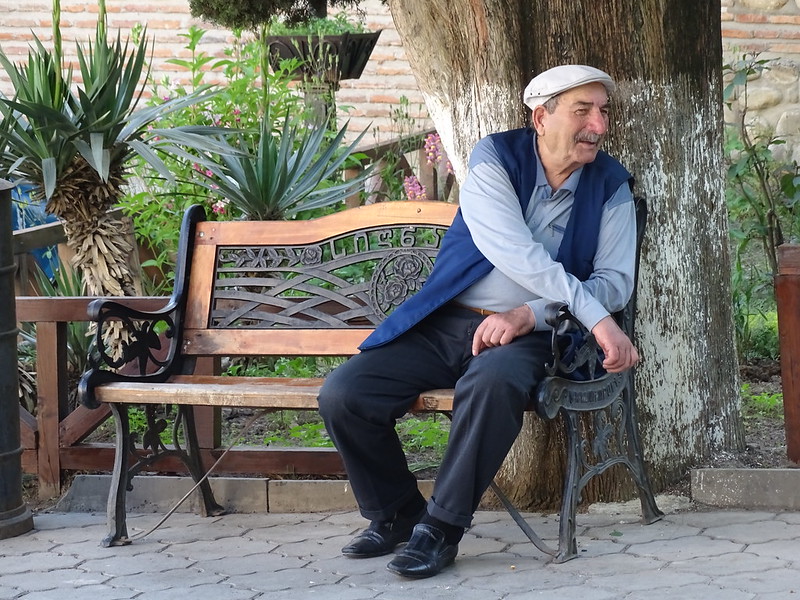Nonprofits Address Elderly Poverty in Georgia
 Georgia, a country known for its unique architecture and mountainous landscape, has advanced significantly in poverty reduction and health care accessibility over the last decade. As life expectancy increases exponentially, there is an increased need for resources and programs to accommodate the aging population better.
Georgia, a country known for its unique architecture and mountainous landscape, has advanced significantly in poverty reduction and health care accessibility over the last decade. As life expectancy increases exponentially, there is an increased need for resources and programs to accommodate the aging population better.
Elderly Poverty in Georgia and Medical Accessibility
Social programs, such as government-provided subsidies and universal health care, have created optimistic results in the last quarter century. However, poverty is still a large burden for many Georgians. Though life expectancy has risen, the quality of life for the aging population has not improved satisfactorily.
The government offers retired Georgians a pension, but this rarely covers all of their expenses. In recent efforts, Georgia has invested in a universal health coverage plan. Despite this, the policy is not widely accessible and the cost of co-payments is still too high for many working-class households: “The high cost of outpatient medicines is the biggest barrier to accessing care for the lowest income households.”
Poverty is least prevalent in the elderly population (14.4%) compared to children (25.5%) and the working-age population (19.5%). However, as a vulnerable population, older people suffer disproportionately from a lack of medical accessibility and unemployment, especially in rural areas. Challenges in health care accessibility include low pension, job scarcity and an inability to commute.
Proposed Solutions
A large issue in modern-day Georgia is that people do not see elderly workers as valuable. This view is due to the idea that age causes physical deterioration and a lack of skill. In addition, there is a belief in Georgia that the youth should have uninhibited access to the job market and that the older generations should not be impeded. However, this has created a rise in the poverty of older adults in Georgia. Older Georgians are not expected to partake in the workforce. However, because health care and other social services are not widely accessible to them, especially in rural areas, many still require an income.
Many older Georgians also require more health care than the average citizen due to their age, which increases medical expenses. Despite this, employers are hesitant to hire older Georgians due to age-related discrimination. The United Nations (U.N.) suggests that the Georgian government establish programs that aid older workers through education and training. It also notes that the government could create more jobs suitable for older workers, as well as provide tax-related incentives to employers hiring older workers.
In addition, the U.N. stresses that government-provided pensions are not sufficient means to live off of and that citizens be encouraged to accumulate private savings earlier in life. As discrimination against the elderly population is prevalent in the workforce, the U.N. notes that the Georgian government could implement stricter measures to forbid workplace and hiring discrimination. The U.N. necessitates a shift in this negative view of older generations: “Awareness-raising should target employers, helping them to understand the benefits of an age-balanced workforce, encouraging them to employ and retain older workers and to provide age-friendly workplaces.”
Beacons of Positive Change
A key way that Georgia has improved health and wellness accessibility for elders is by establishing free senior care centers. Though these are largely independent, nonprofit organizations, they have tremendously impacted communities. They provide resources to meet the needs of aging citizens and combat elderly poverty in Georgia.
One such provider is Catharsis: The House of Charity. A pioneer in its field, it was established in 1990 as the economy took a hit. Unfortunately, this affected various social services and worsened poverty rates. It focuses primarily on senior care and offers free medical assistance, food, clothing and other enrichment resources. The organization advocates elderly independence and expression by cultivating a “warm, family-like setting.” It has multiple branches operating in several regions of Georgia and has helped more than 1500 individuals since its establishment.
Another essential elderly care provider is American Friends of Georgia, working out of Tbilisi. It is a nonprofit organization that provides free care to vulnerable populations. This includes the sick, the disabled, children and the elderly. It is also focused on furthering education and aims to diversify accessibility through technology donations, higher-education scholarships and a basketball academy. For older patients, the initiative has created a hospice program and in-home care. It has tended to more than 800 elderly patients since 2003. It also focuses on empowering elderly Georgians in their careers through skill-building and job training.
The Future
Though there are barriers to job and social service accessibility in Georgia, steps are being taken to care for the growing elderly population and to ensure their wellness. Though organizations specializing in these efforts are largely privatized, normalizing programs that aid in elderly welfare will instigate the growth of such resources. Finally, there are several plausible solutions, as suggested by the U.N., to help alleviate financial disparities among Georgians, thus alleviating elderly poverty in Georgia.
– Anna Williams
Photo: Flickr
